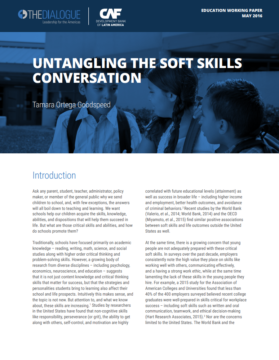
Untangling the Soft Skills Conversation
Building soft skills can help lead to better academic performance, employment and wage opportunities, and healthy behaviors.
Building soft skills can help lead to better academic performance, employment and wage opportunities, and healthy behaviors.
¿Cuál es el estado de la calidad educativa en América Latina?
The mobilization of 70,000 students in the streets of Chile is more than just a protest for free higher education.
The goal of education is to promote learning. Sitting in classrooms is a weak proxy for knowing how to read, do math, and apply science. Latin America needs to worry less about schooling and more about learning.
Latin America inequality gap, economic integration, and infrastructure and education systems were among the issues spotlighted at the XVII Annual CAF Conference.
A compilation of the Dialogue’s reports, articles and presentations on the most important issues shaping Guatemala’s development.
A compilation of the Dialogue’s reports, articles and presentations on the most important issues shaping Costa Rica’s development.
Throughout Latin America, a digital divide has emerged.
A compilation of the Dialogue’s reports, articles and presentations on the most important issues shaping Honduras’ development.
History tells us that economic crises cause large increases in poverty. The most recent economic crisis will cause Latin America’s GDP to contract around 2 percent in 2009.
In terms of human capital, Guatemala lags behind in an increasingly global economy. In its Human Capital Index, the World Economic Forum ranked Guatemala as number 94 out of 130 economies. Although a multifaceted concept, learning has a significant role in building human capital, as education –including enrollment, quality and attainment— impacts the future of the labor force. In this article, we review the educational landscape in Guatemala, including literacy, K-12 education, and workforce development.
Honduras shows great disparities in education. Despite being one of the countries in the Central American region that spends the highest percentage of its national budget on education, it exhibits some of the lowest performance. The challenges that it faces are formidable, and include addressing illiteracy among rural populations, improving access to secondary school, increasing enrollment in post-secondary schools, and improving overall educational quality. In this brief, we review the educational landscape in Honduras, including literacy, K-12 education, and workforce development.
Un nuevo informe publicado por CAF – Banco de Desarrollo de América Latina y el Diálogo Interamericano describe cómo los países latinoamericanos han buscado mejorar la pertinencia de la formación de capital humano y qué intervenciones pueden potenciar y mejorar las intervenciones existentes.
On April 3, 2024, the Inter-American Dialogue released the memo “State Capture in Nicaragua – The Case for International Pressure.” The report, produced by Manuel Orozco, director of the Migration, Remittances, and Development program, highlights how members of the Nicaraguan government have engaged in state capture, the role of international financial institutions in preventing state captures, and provides a look into external financing, its consequences, and the Nicaraguan economy at-large.
Durante el X Foro de Calidad Educativa, celebrado el 9 de noviembre en Buenos Aires, Ariel Fiszbein del Programa de Educación del Diálogo Interamericano presentó el Informe de Progreso Educativo de Argentina, el cual analiza el estado de la educación argentina con el propósito de visibilizar los principales desafíos educativos de la nación y presentar recomendaciones para abordarlos.
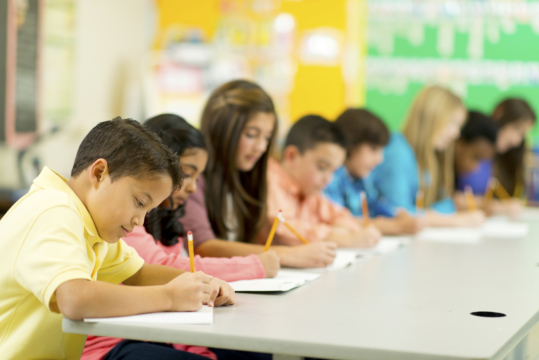
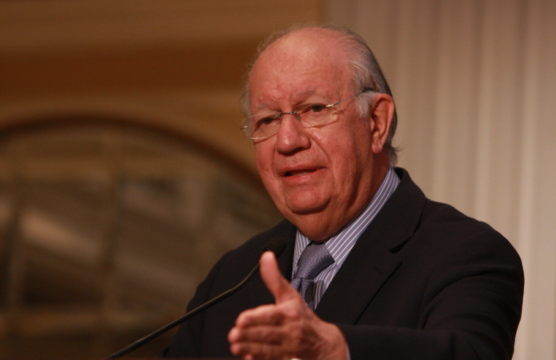
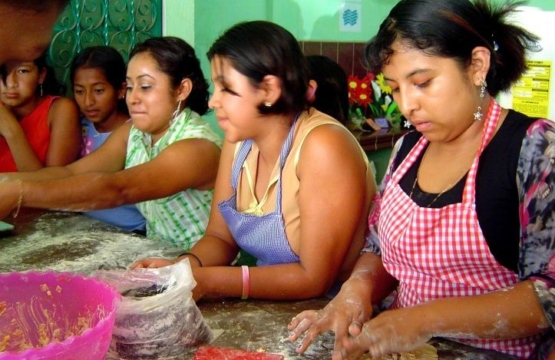
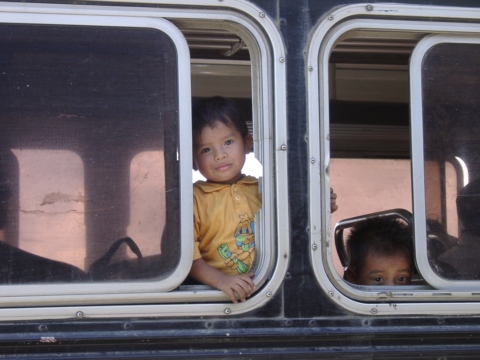
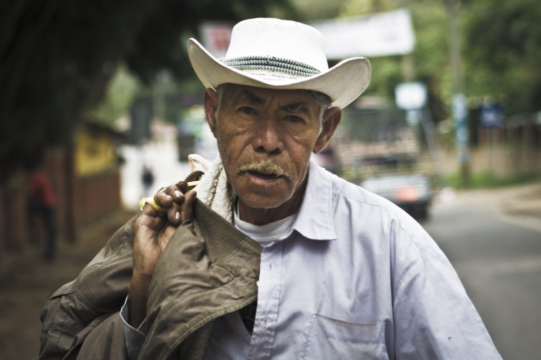
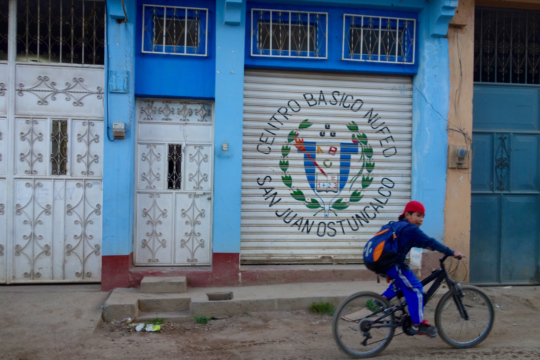
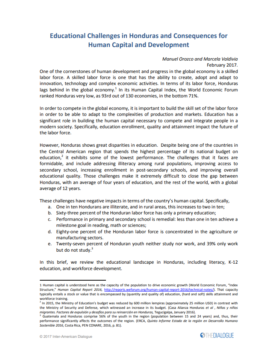
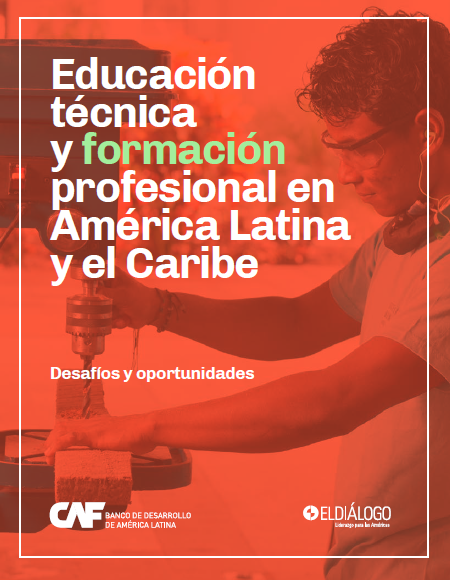
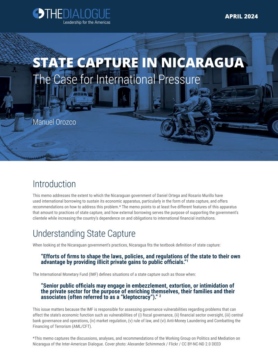
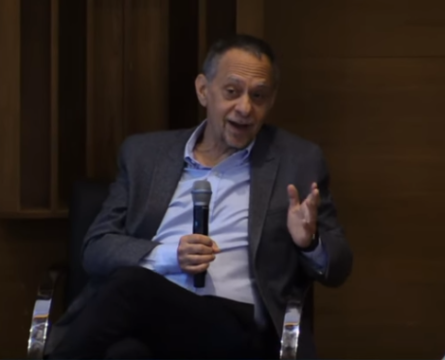 Video
Video